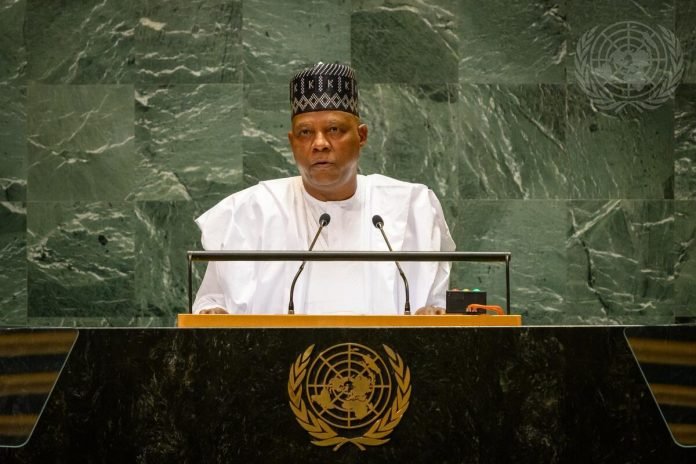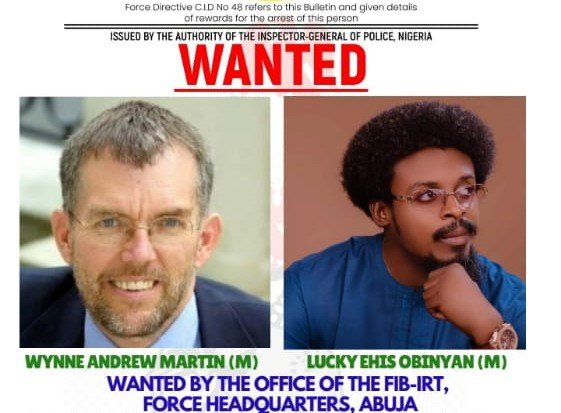Nigeria has called on the United Nations (UN) to prioritize debt forgiveness for Nigeria and other developing countries.
Addressing world leaders during the General Debate at the 79th Session of the United Nations General Assembly (UNGA) in New York on Tuesday, September 24, President Bola Ahmed Tinubu, whose speech was read on his behalf by Vice President Kashim Shettima raised the case of the crippling debt burden faced by developing nations, which hampers their ability to meet the needs of African citizens.
He recommended that any reform of the international financial system should include “comprehensive debt relief measures, to enable sustainable financing for development. Countries of the Global South cannot make meaningful economic progress without special concessions and a review of their current debt burden.”
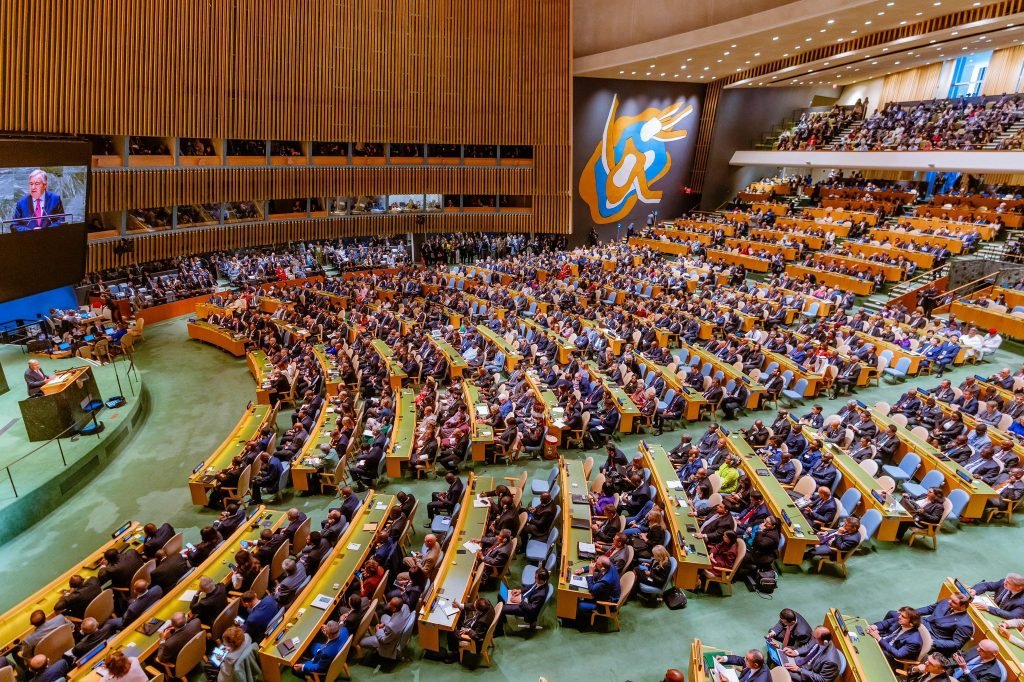
The Nigerian president who also serves as the Chairman of the Economic Community of West African States (ECOWAS) also expressed concern over the return of unconstitutional changes of government and military coups in some African countries. He said democracy remained fragile without economic development and sustained peace, and therefore called for reforms in the international financial architecture and a transparent multilateral trading system to support developing and least developed countries.
Security, Climate Change & Reforms
On security, Tinubu emphasized the need to combat terrorism, banditry, and insurgency to build durable societies. He assured that the outcomes of the High-Level African Counter-Terrorism Meeting hosted by Nigeria would provide solutions to these challenges.
Addressing climate change, Tinubu warned of its impact on sustainable development and called for the implementation of commitments made at various COP meetings. He cited recent devastating floods in Nigeria as evidence of the urgent need for global action on climate change.
Tinubu reiterated Nigeria’s call for bold reforms in the UN Security Council, advocating for permanent seats for African countries. He stressed the importance of reflecting the diversity and plurality of the world in the Council’s composition.
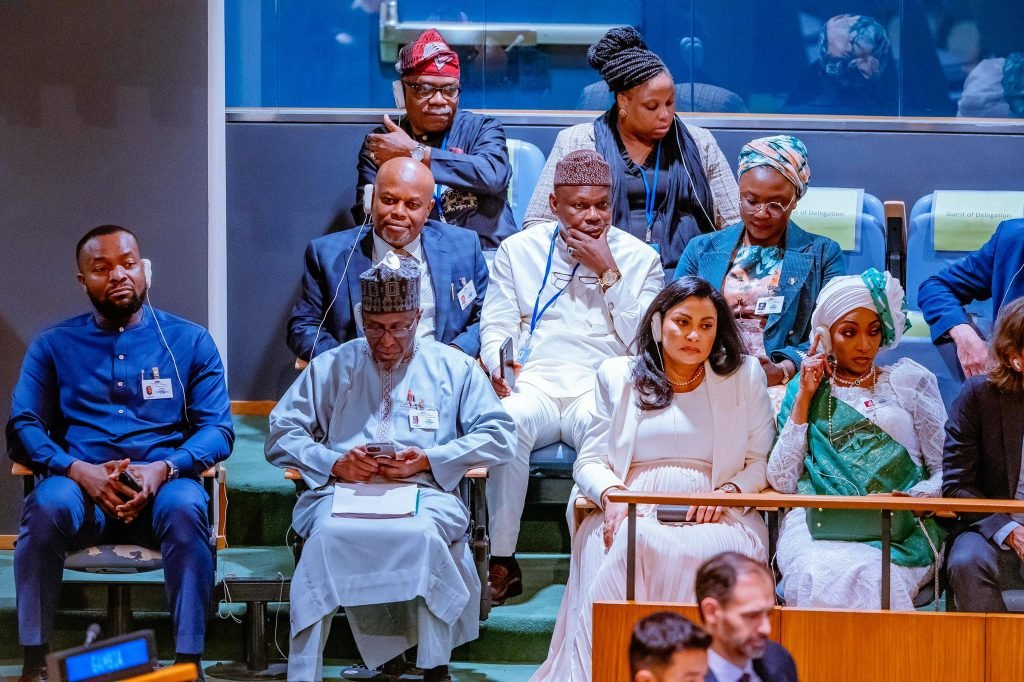
Tinubu Makes A Case For Multilateralism
President Tinubu also warned against the steep descent to singularity and nationalism, which, according to him, was undermining the quest for peaceful and collective resolution of global challenges, such as terrorism, climate change, poverty, food crises, hyper-inflation, nuclear proliferation, and grinding debt burden, among others.
The Nigerian president expressed concern about the main objectives of the UN and how it could sustain the global body’s relevance and resilience, stating that the pillars of the organisation are at risk of being broken against the principles of inclusivity, equality and cooperation, which it stands for.
Tinubu explained, “Today, these pillars of our organisation are threatened. They risk being broken by the relentless pursuit of individual national priorities rather than the collective needs of the nations that are assembled here today.
“While commitment to multilateralism offers us the surest guarantee of global action to address the existential challenges we face, singularity and nationalism are undermining the aspirations towards the peaceful and collective resolution of such challenges.
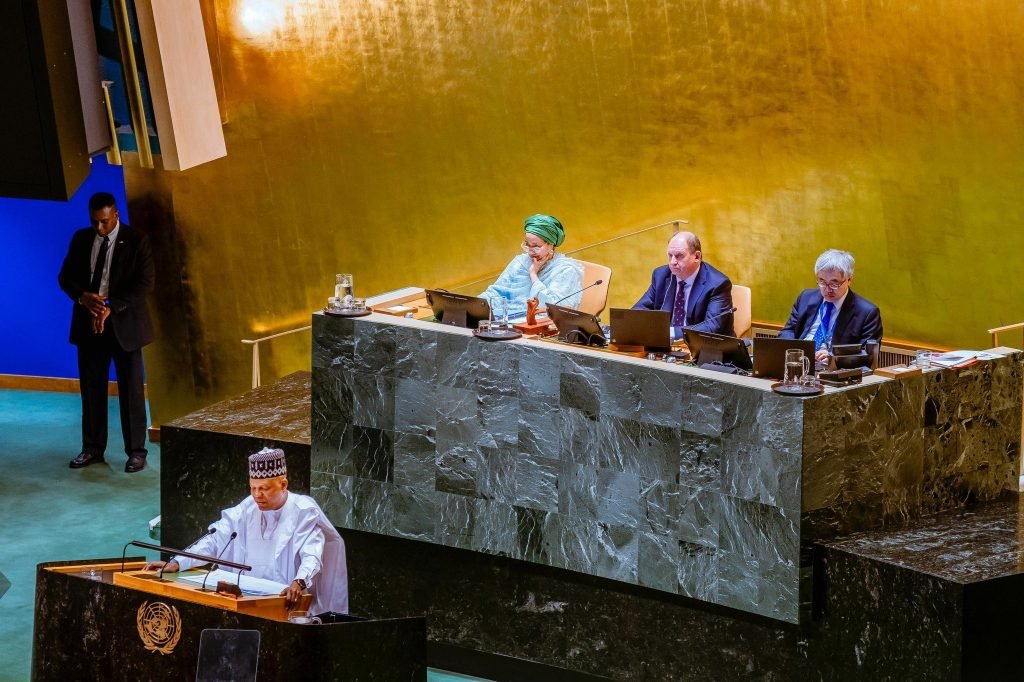
“From last year’s summit, and, indeed, from previous years, we have carried over the numerous challenges of terrorism, armed conflict, inequality, poverty, racial discrimination, human rights abuses, food crises, hunger, irregular migration, piracy, global pandemics, hyper-inflation, nuclear proliferation, grinding debt burden, climate change, and a host of other vexations.
“The continued manifestation of these challenges testifies to our failings rather than to any lofty achievements on our part. Billions of dollars are being committed to the prosecution of wars and the fanning of the embers of conflict.”
Support from Finland
Vice President Shettima, on the sidelines of the UNGA, solicited Finland’s support for Nigeria’s pursuit of a permanent seat at the UN Security Council. Finnish President Alexander Stubb expressed support for the expansion and reconstruction of the Council, and the need for change in line with modern world dynamics.
Nigeria’s address at the UNGA underlined her commitment to global cooperation, with special emphasis on the importance of debt forgiveness, economic reforms, and security measures for sustainable development and peace.
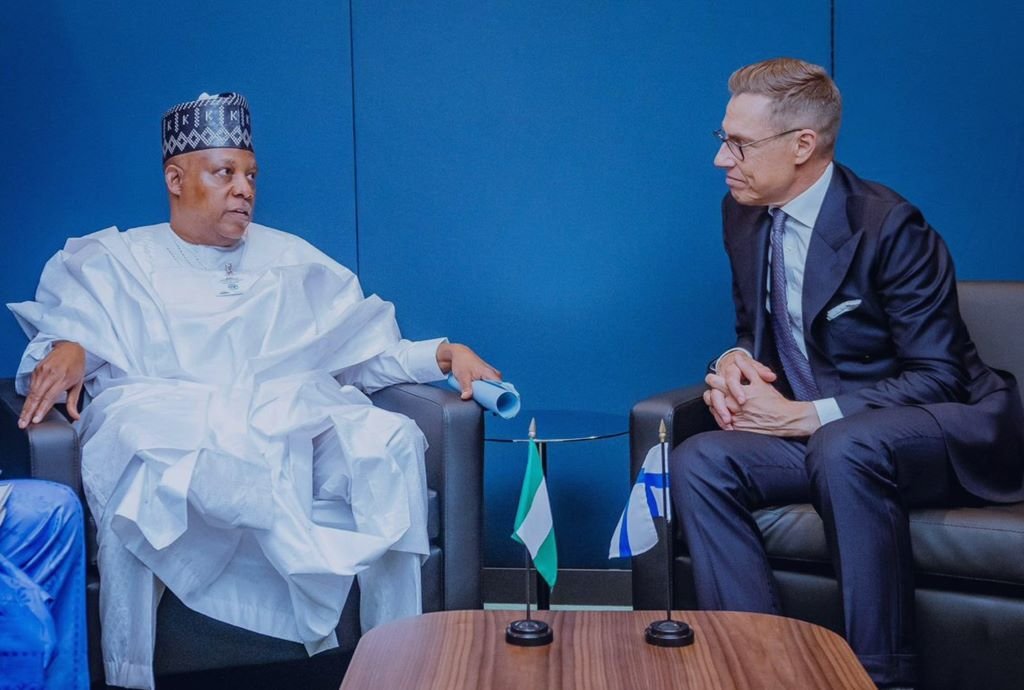
The president told the world gathering that, “Our people need employment. They need decent livelihoods. They desire good and affordable education and healthcare for their children and families. They need to live in healthy, safe, and secure environments. They need hope and they need opportunity.”
However, some Western leaders may potentially view Tinubu’s call for debt forgiveness with contempt, considering their awareness of the mismanagement of resources by some African leaders and their illicit wealth stashed in the same financial institutions of industrialized nations they now seek debt forgiveness from.
Highlights of Tinubu’s Address:
– Debt Forgiveness: Tinubu called for debt relief from creditors and multilateral financial institutions to enable sustainable financing for development.
– Multilateralism: He urged world leaders to recommit to multilateralism, emphasizing inclusivity, equality, and cooperation as essential principles.
– Economic Challenges: The president pointed out that trade barriers and protectionist policies are detrimental to global investments and economic growth.
– Corruption and Illicit Financial Flows: Tinubu advocated for the recovery of proceeds from corruption and illicit financial flows, calling for international cooperation to return stolen assets to their countries of origin.
– Global Issues: He condemned the rise of singularity and nationalism, which undermine efforts to address global challenges such as terrorism, climate change, poverty, and food crises.
Comment, Like 👍, share this article, and Follow us on our social media handles.



